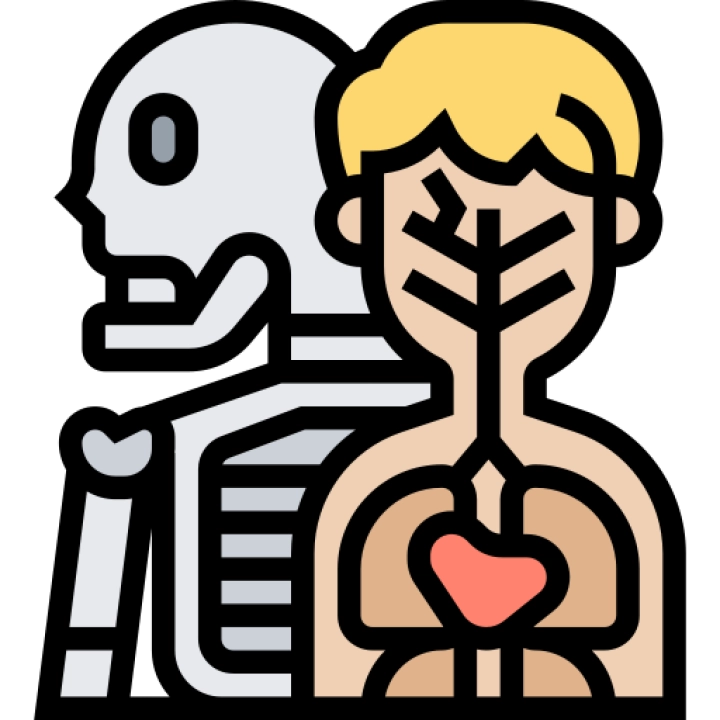Faculty: Institute of Graduate Programs
This specialty focuses on studying physiological processes and their applications in medical sciences. Students explore key areas such as cellular physiology, organ systems, internal balance, and pathological physiology. The program emphasizes experimental and theoretical knowledge, research methodologies, and understanding clinical applications. Graduates are prepared for careers in medical research, healthcare, biotechnology, and related fields.
Learning Objectives:
- Understanding the basics of medical physiology and human biology.
- Developing skills in cellular physiology, organ systems, and internal balance.
- Learning techniques for studying physiological processes and their clinical applications.
- Exploring principles of pathological physiology and disease mechanisms.
- Understanding the role of physiology in medical diagnoses and treatments.
- Analyzing challenges and opportunities in medical physiology research.
- Developing teamwork and problem-solving skills for research projects and clinical settings.
Main Curriculum:
- Introduction to Medical Physiology
- Overview of medical physiology, fundamental concepts, and historical context.
- Basics of human biology and physiological processes.
- Cellular Physiology
- Principles of cellular physiology, including cell structure, function, and communication.
- Techniques for studying cellular processes and mechanisms.
- Organ Physiology
- Essentials of organ systems, including cardiovascular, respiratory, digestive, and nervous systems.
- Techniques for understanding the physiology of different organ systems.
- Homeostasis
- Principles of homeostasis, including regulation of internal environments and physiological balance.
- Techniques for studying mechanisms of homeostasis and its disorders.
- Pathological Physiology
- Basics of pathological physiology, including disease mechanisms, etiology, and progression.
- Techniques for studying the physiological basis of diseases and their clinical manifestations.
- Research Methods in Medical Physiology
- Principles of research methods, including experimental design, data collection, and analysis.
- Techniques for conducting and evaluating research in medical physiology.
- Clinical Applications of Physiology
- Exploring clinical applications of physiology in diagnostics and therapies.
- Techniques for applying physiological knowledge in clinical settings.
- Practical Training in Medical Physiology
- Real-world research and clinical experiences, including observations, internships, and practical projects.
- Techniques for applying acquired skills in practical medical physiology settings.
- Graduation Project in Medical Physiology
- A comprehensive project applying skills in cellular, organ, or pathological physiology.
- Techniques for presenting an innovative and distinguished research project in medical physiology.
Evaluation Methods:
- Reports on cellular physiology, organ system analyses, homeostasis studies, pathological physiology projects, research methodology papers, clinical application studies, practical training reports, graduation projects, group projects, and internships.
Recommended Textbooks:
- "Medical Physiology: A Cellular and Molecular Approach" by Walter F. Boron and Emile L. Boulpaep.
- "Human Physiology: From Cells to Systems" by Lauralee Sherwood.
- "Pathophysiology: The Biological Basis for Disease in Adults and Children" by Stephen J. McPhee and Maxine A. Papadakis.
- "Research Methods in Medical Physiology" by various authors.
- "Clinical Applications of Physiology" by various authors.
Prerequisites:
Basic knowledge of biology, chemistry, and physiology. Suitable for students interested in medical research, healthcare, and biotechnology.
Duration:
Typically 4 years to complete a bachelor's degree, including coursework, projects, practical training, and internships.
Certification:
Graduates can obtain a degree in medical physiology and pursue professional certifications in medical research, healthcare, or biotechnology.
Target Audience:
Aspiring medical researchers, healthcare professionals, biotechnology experts, and professionals seeking specialization in medical physiology. This specialty equips students with the experimental, theoretical, and practical skills necessary to excel in medical physiology, supporting careers in medical research, healthcare, biotechnology, and related fields.

